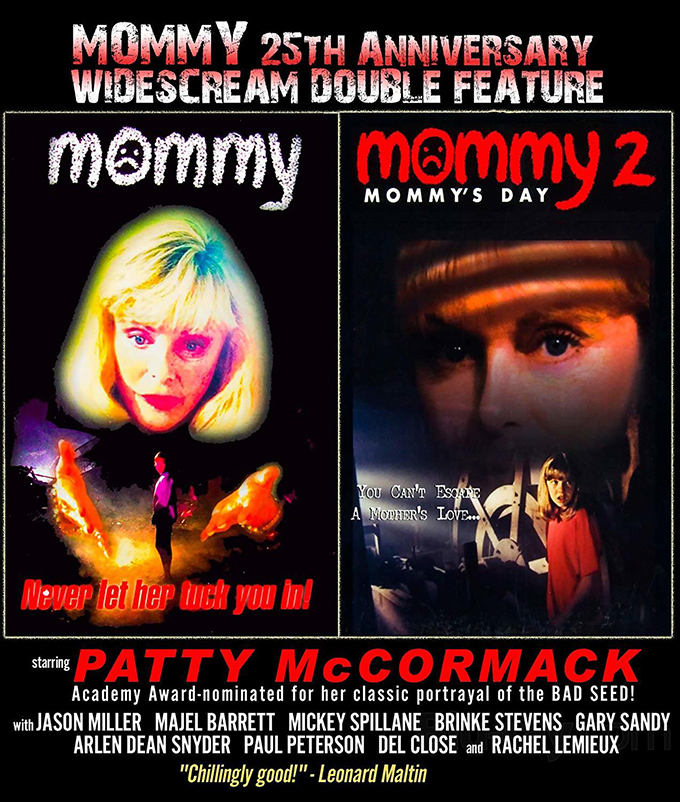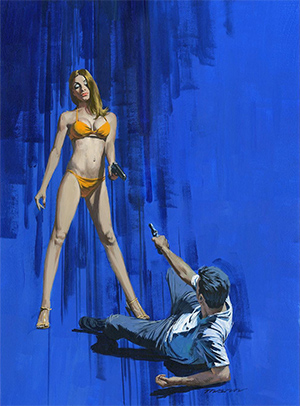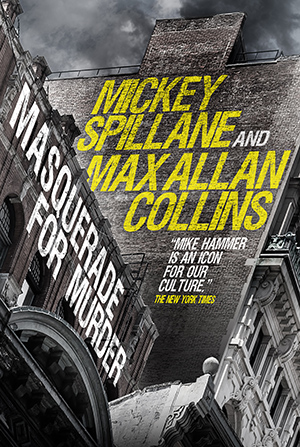I spoke too soon.
Last week I mentioned that – while reviews have been uniformly splendid for Killing Quarry on the web – none of the publishing industry’s trade publications had weighed in on the latest Quarry novel. As you may recall, I said I was not surprised, because entries in long-running series are often overlooked by PW, Kirkus, Booklist and Library Journal.
But I was wrong, and am delighted to be. I am providing excerpts because links to the full reviews would probably require you to subscribe to the services.
Anyway, this is from Publisher’s Weekly:
“Irresistible … It’s Lu’s presence, and the dash of romance she brings, that really energizes this entry … Collins maintains a tension between the two that’s resolved only on the final page. One of the book’s great pleasures is the humorless Quarry’s deadpan narration, whether he’s describing a pragmatic sexual encounter or exactly how a carefully planned hit can suddenly go off the rails. Newcomers and established fans alike will be happily drawn into Quarry’s cold-blooded criminal world.”
Okay, actually I’d read this earlier and forgotten about it; it’s a fine review but for the bewildering “humorless Quarry” reference, since the book is pretty much wall-to-wall sick humor, most of it tumbling from Quarry’s (yes) dead-pan lips.
On to Booklist and that fine reviewer, Bill Ott (I define “fine reviewer” as any critic with the sense to like my stuff):
“A thoroughly entertaining pas de deux, evoking Richard Condon’s classic Prizzi’s Honor (1982), in which Quarry and Lu come together as lovers and co-conspirators, despite neither one being sure who will try to kill the other first. The seventies backdrop, complete with cavorting and bloodletting at a former Playboy resort, only adds to the time-capsule ambience of this pulpy pleasure trip.”
For you less worldly readers, a pas de deux is a dance between a man and a woman (all right, I admit it – I had to look it up…je m’excuse.)
Last week I also hyped the audio of Killing Quarry read by Stefan Rudnicki even though I hadn’t heard it yet. Since then Barb and I took a day trip to Des Moines for shopping and food and maintaining our sanity, and the five-hour round trip allowed us to listen to Stefan narrating Killing Quarry (the new Quarry novel – have I mentioned that?).
Stefan does a fantastic job on the book. I will admit that the first time I heard him read a Quarry I wondered if his deep, resonant voice, that of a mature male, was right for my eternally boyish killer. I was soon won over, because Stefan gets every nuance of what I’m up to. He has lately been narrating the Mike Hammer novels (Murder, My Love and the forthcoming Masquerade for Murder), and stepping in for Stacy Keach in that regard is a daunting task, but what a fine job Stefan’s doing of it.
Dan John Miller has become, for me (and for Barb), the voice of Nate Heller. He has done all of the Heller novels including Better Dead, as well as the novellas (Triple Play) and short stories (Chicago Lightning), and I hope (if I land an audio book) he’ll read Do No Harm. In just that way, Stefan has become the voice of Quarry for me, and the male maturity he brings indicates that the notion of Quarry writing these memoirs later in life (much as Nate Heller does) is the right one.
Quarry is on hiatus at the moment, because the next novel for Hard Case Crime will be a Nolan – Skim Deep. More about that later.
* * *
While in Des Moines I caught the film Doctor Sleep, which seems not to be staying in theaters long. That’s a pity because it’s a fine Stephen King adaptation, and director/screenwriter Mike Flanagan pulls off a feat that I would have thought impossible – managing to make the film simultaneously an effective sequel to Kubrick’s The Shining and King’s The Shining. To do this, he had to get past both Stanley Kubrick’s estate and Stephen King, who notoriously hates the Kubrick film (he’s wrong) to the annoyance of the late director’s estate (they’re right, unless King didn’t cash the check).
I have a lot of respect for Stephen King, by the way. I discovered him via the novel Carrie, a copy of which my wife’s then-teenage sister was reading. It’s a great book, and I followed his work for a while, but couldn’t keep up with his output (look who’s talking) and also found his prose increasingly self-indulgent, after he got so famous he could no longer be edited. Was anybody really looking forward to a longer “cut” of The Stand?
But the guy is a hell of a storyteller, with a wonderful imagination and a devotion to exploring his own obsessions and concerns via prose fiction. Good for him. Who else do you know, who is still walking the planet, who created a section of every bookstore to accommodate the genre he popularized? “Horror” didn’t get its own shelves till King came along.
So I usually go to the movies based on his work and this is a good one, rivaling the two It films. As someone who’s written his share of sequels, I was impressed by how both the filmmaker and the source material explored a wholly different tale but then wound back up at the Overlook Hotel to tie a bloody bow on the proceedings. I particularly relished the bad guys, hippies living in a caravan of Winnebagos, riding under the radar of the world – deadly Dead Heads.
Star Ewan McGregor is fine as the adult Danny Torrance and a very good Kyliegh Curran is the preteen gifted (and plagued by) a “shining” of psychic abilities. An astonishing Rebecca Ferguson is the chief evil hippie woman, and if you’re wondering who might be able to play Ms. Tree effectively, take a look at her.
I’d also like to recommend several ongoing TV series I’ve seen of late, the kind of eight-or-ten-episodes-per-season unfolding novels-on-screen that make binge-watching such a delirious drug.
Danny McBride has already done two of my favorite examples of that form by way of Eastbound & Down and Vice Principals, both among the best dark comedies I’ve ever seen. McBride is relentless in making the characters he plays un-self-aware assholes, and yet somehow appealing and even displaying unlikely redemptive moments. He has topped himself in the epic Righteous Gemstones, an acid yet oddly affectionate look at a family who have taken right-wing Christianity to ridiculous yet believable low heights of show biz carnyism. McBride’s trick (and that word is not really fair) is exposing his characters, and this time the whole family surrounding his character, as fairly terrible human beings, then gradually revealing their humanity, which – damnit – makes us care about them. This is my favorite American drama, although really it’s a satirical melodrama, but let’s not carp. An HBO show.
A close second is Goliath, the Billy Bob Thorton drama (again, it’s melodrama, but nobody but me seems to make that distinction anymore) about a lawyer who rose and fell and (sort of) rose again. He’s the David who battles one Goliath per season, fighting the powers of political and economic corruption. The first season is among the best of its kind, the second season slightly faltering by going over the top sexually (and that’s me complaining, remember) but mostly by failing to show Billy Bob in court – part of the effectiveness of the series is its depiction of the main character as something of a shambling alcoholic with a seemingly inexplicable big reputation, the reason for which is only revealed in the courtroom. The third season, which is kind of a sideways modernday take on Chinatown, is back on point, with Billy Bob back in court, alienating a crooked judge. It streams on Amazon Prime.
I would also recommend Wentworth, the re-imagining of the classic Prisoner Cell Block H. Barb and I just watched season seven of this terrific women-in-prison show, which is very much a soap opera but an incredible one, with a primarily female cast who just kill it. This streams on Netflix, but we watched it on a Blu-ray from the UK.
* * *
For those of you wanting signed copies of Killing Quarry, VJ Books has it on sale here at around 40% off.
The unstoppable J. Kingston Pierce has listed (by year) the best books of the decade, and two are mine (Quarry’s Choice and Better Dead).
Charles Ardai, bless him, has given Geeks A Go Go (love it) a great interview about Quarry in general and Killing Quarry in particular.
Another fine Killing Quarry review is here from Criminal Element.
Crime Fiction Lover loves it, too.
But enough about Quarry. Here’s somebody who considers Road to Perdition one of the great gangster films.
M.A.C.



